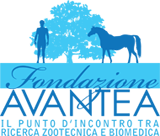Scientific committee
Dr. Giovanna Lazzari, President of the Scientific Commettee
She obtained her degree in Veterinary Medicine at the University of Milan and has carried out postgraduate research activity in Cambridge (UK). She has been President of the Italian Society of Embryo Transfer and of the European Association for Embryo Transfer. She is author of over 160 scientific publications. She is Research Director of Avantea (Laboratory of Reproductive Technologies), specialised in the field of embryonic stem cells, early embryonic development and the development of alternative toxicological testing based on gametes, embryos and stem cells. She also coordinates the research relating to infertility bovine embryo in relation to genotype and the interaction between embryo and uterine environment. It has been an adjunct professor at the universities of Pisa and Bologna.
Contact
Prof. Sir Ian Wilmut
Prof. Sir Ian Wilmut is a Scottish embryologist and in 1996, he was the first to clone a mammal, a Finn Dorset lamb named Dolly, from fully differentiated adult mammary cells. Wilmut's work, published in 1997, pushed the concept of cloning into the news and public debate. He is currently Director of the MRC Centre for Regenerative Medicine at the University of Edinburgh. He was granted an OBE in 1999 for services to embryo development. In December 2007 it was announced that he would be knighted in the 2008 New Year Honours. His works have shown that the genome of a differentiated cell can be reprogrammed, paving the way for animal cloning for research and livestock fields and giving a strong boost to biomedical research and regenerative medicine. For more info, click here.
Prof. George Seidel
Prof. George Seidel, Distinguished Professor of the Department of Biomedical Sciences Animal Reproduction and Biotechnology Laboratory of the Colorado State University. He is Member of Animal Reproduction and Biotechnology Laboratory Program in Cell and Molecular Biology and has a PhD at the Cornell University MS, Pennsylvania State University. As teaching Activities he has been teaching parts of the graduate course, Reproductive Physiology and Endocrinology, and a companion laboratory course, Research Techniques for Gametes and Embryos. As research interests in reproductive physiology, his main focus is on in vitro fertilization and culture of mammalian embryos, including the related areas of oocyte maturation, micromanipulation, and cryopreservation of embryos and oocytes. His research on cryopreservation of oocytes and embryos, both conventionally and using vitrification, is aimed at simplifying procedures without decreasing survival rates. They have also developed systems for cryopreservation that have no components of animal origin, such as serum albumin, in order to decrease chances of spreading viral diseases. For more info, click here.
